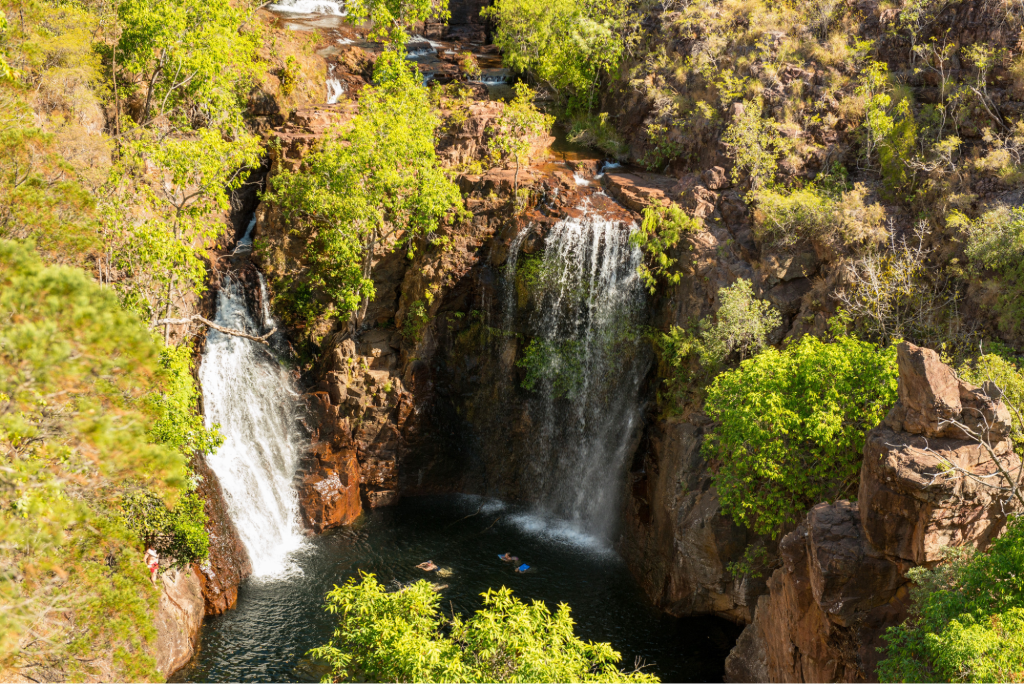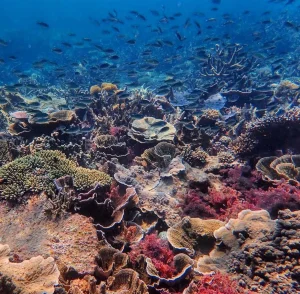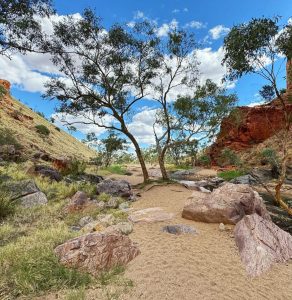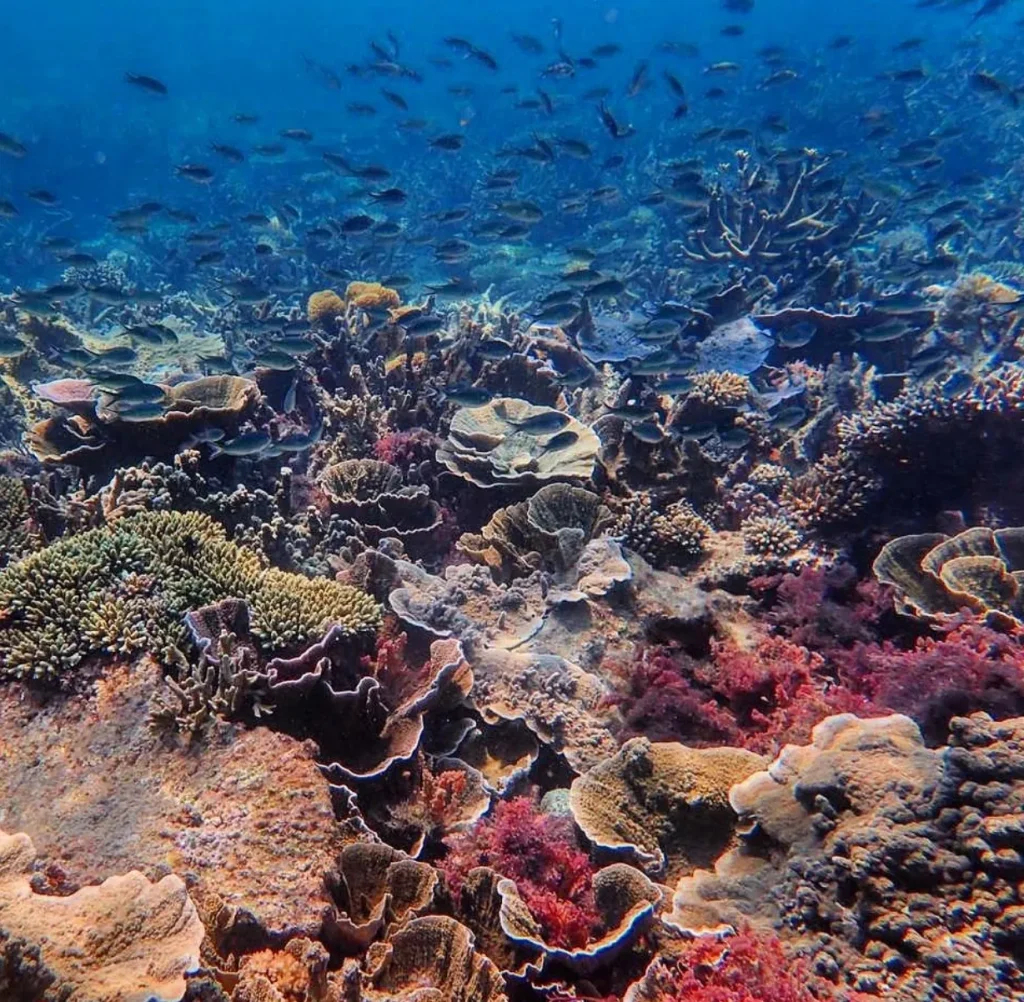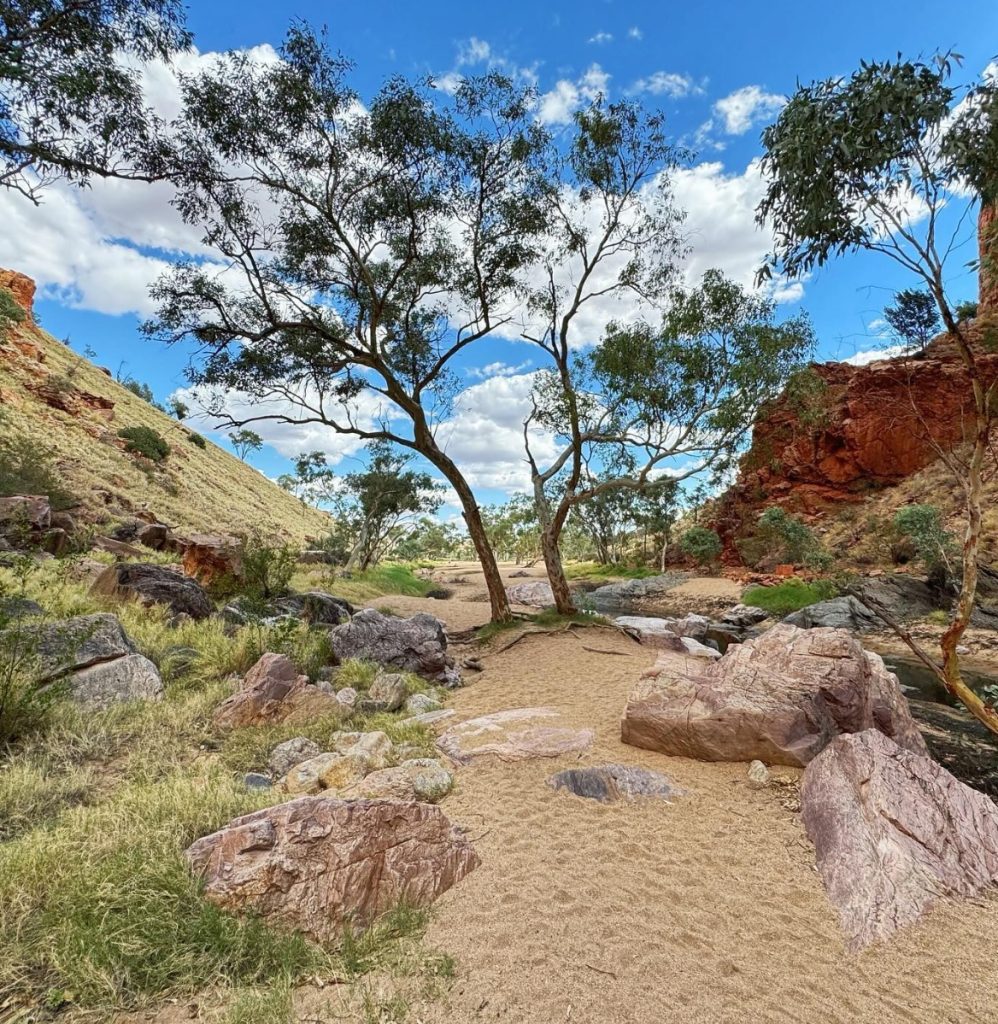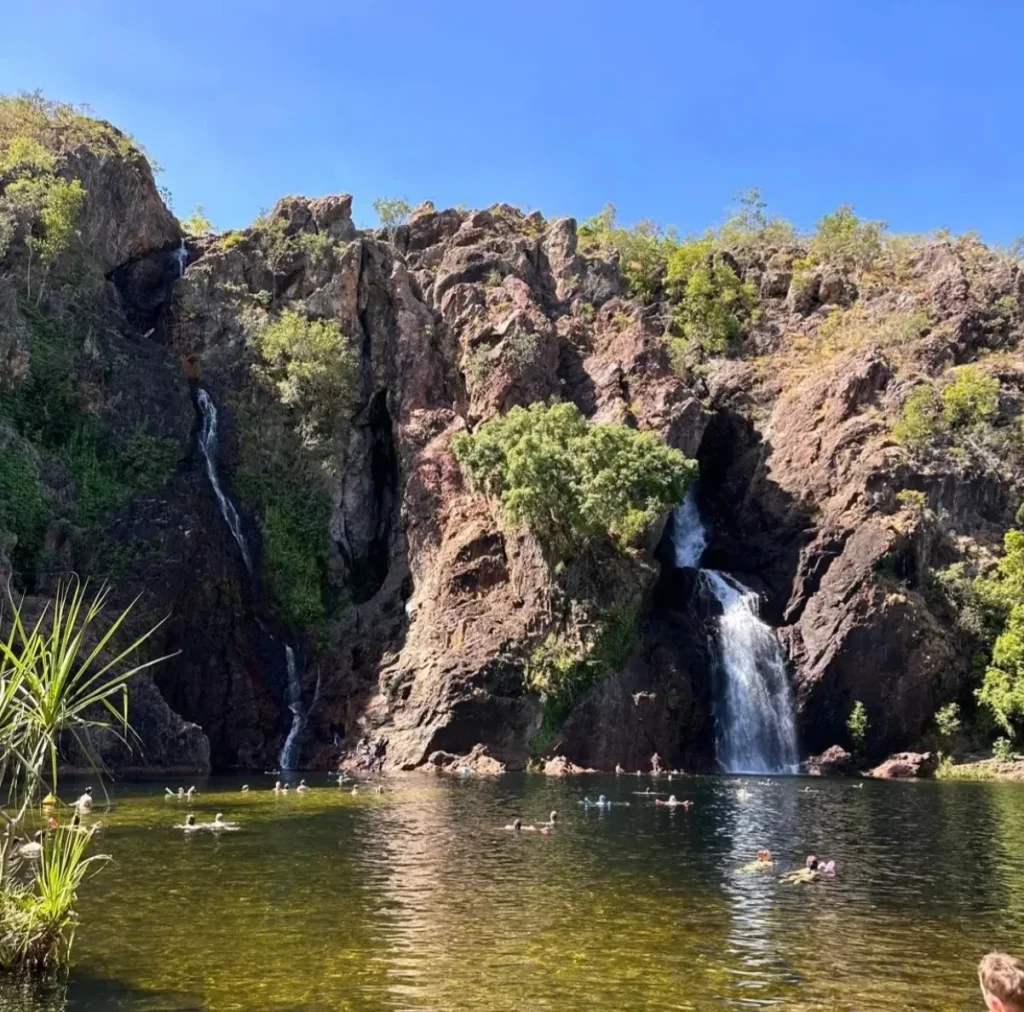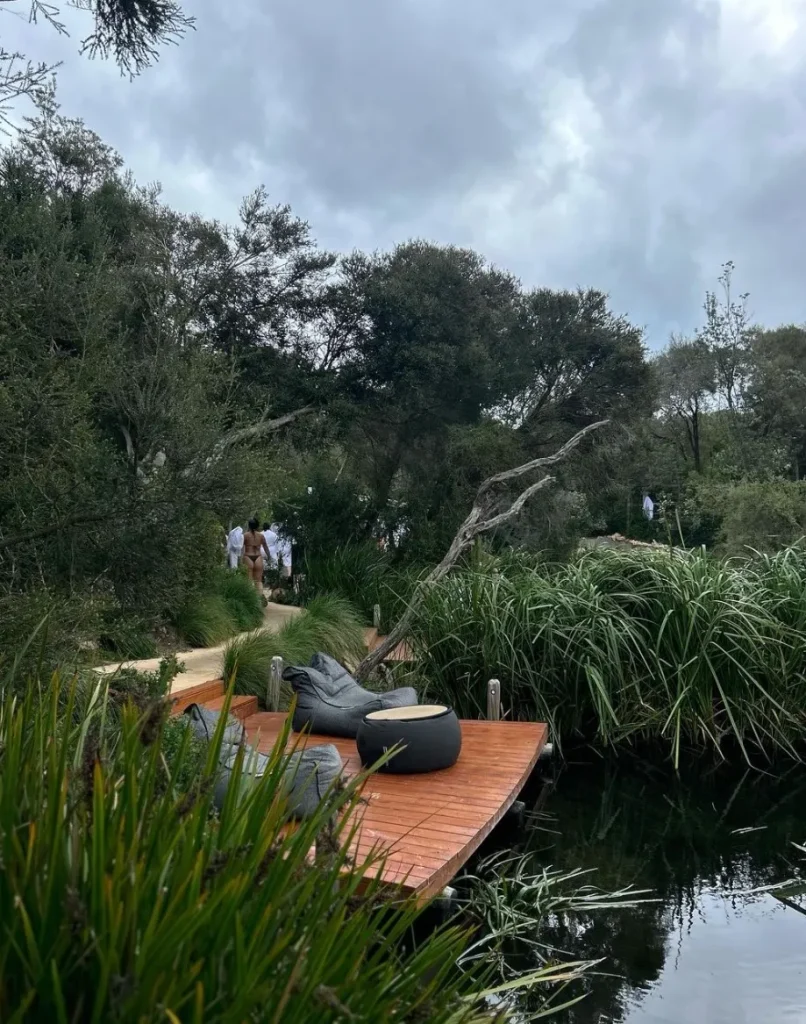Nestled in Australia’s Northern Territory, Litchfield National Park is a haven for nature enthusiasts and adventure seekers alike. This article delves into the park’s majestic waterfalls, each offering a unique blend of breathtaking scenery, serene swimming spots, and picturesque walking trails. From the iconic Wangi Falls to the secluded Buley Rockhole, Litchfield’s waterfalls are a key attraction, drawing visitors from around the world. As we explore these natural wonders, we will also discuss practical visiting tips and how to fully enjoy a Litchfield National Park tour, ensuring a mesmerizing experience with every splash and cascade.
The Allure of Litchfield’s Waterfalls

The waterfalls of Litchfield National Park are a spectacular sight, breaking the serenity of the lush tropical bushland with their powerful presence. These natural features provide a cooling escape from the tropical heat and a home to an array of plant and wildlife. The allure lies not just in the visual spectacle but also in the refreshing experiences they offer to all who venture into their midst. Whether it’s taking a dip in the inviting pools, enjoying a picnic by the water’s edge, or simply basking in the sights and sounds of the wilderness, Litchfield’s waterfalls create unforgettable moments for every visitor.
Notable Waterfalls of Litchfield National Park
Wangi Falls
Wangi Falls stands as one of Litchfield National Park’s most iconic attractions. These falls cascade into a large, crystal-clear pool surrounded by lush monsoon forest, offering a refreshing swim in its tranquil waters. Access to Wangi Falls is easy, with well-maintained pathways leading to its viewpoint. During the dry season, a hike to the top of the falls presents travelers with a panoramic view of the park. Facilities such as a cafe, restrooms, and barbeque areas make it a comfortable stop for a day of adventure and relaxation on your Litchfield National Park tour.
Florence Falls
Secluded amidst a monsoon forest, Florence Falls feature a double plunge into a deep swimming hole, perfect for cooling off on a warm day. A short walk from the car park leads to a viewing platform for those who wish to take in the sight without getting wet. For the more adventurous, descending the stairs to the base of the falls provides a closer encounter with this natural marvel. The nearby campground and picnic area make Florence Falls an ideal spot for an overnight stay or a leisurely lunch amidst nature’s melody.
Buley Rockhole
For those seeking a different kind of waterfall experience, Buley Rockhole offers a series of cascading pools that form natural spas, inviting visitors to hop from one to another. The rockholes cater to all levels of swimmers, from shallow areas for lounging to deeper pools for diving. The surrounding forest provides shade and a chance to spot local wildlife while soaking in the refreshing waters. Accessibility and ample parking make Buley Rockhole a favorite for families and groups embarking on a Litchfield National Park tour.
Tolmer Falls
Spectacular Tolmer Falls is known for its high plunge into a deep pool below. Accessible via a walking track that caters to sightseers, the falls offer striking views of both the water cascading down and the lush valley it nourishes. A hidden cave behind the falls is home to protected bat species, adding an element of ecological significance to the site. While swimming is not permitted at Tolmer Falls due to the fragile ecosystem, the exceptional vantage points provide ample photographic opportunities.
Practical Information for Visitors
The timing of your visit greatly influences the experience you’ll have at the waterfalls. The dry season, from May to September, is considered ideal for a visit. This period usually delivers sunny days, lower humidity, and reduced rainfall, allowing for full access to the waterfalls and swimming holes. The wetter months can present a majestic display of the waterfalls’ power but often result in limited access due to flooding. Planning your visit accordingly will ensure you get the most enjoyment out of your Litchfield National Park tour.
Safety and Conservation Efforts
When visiting Litchfield’s waterfalls, safety should always be a priority. Slippery rocks, variable water depths, and the remote nature of the park necessitate caution and respect for posted guidelines. Additionally, visitors play a crucial role in conservation efforts by adhering to designated paths, avoiding littering, and respecting wildlife habitats. By observing these principles, you contribute to the sustainability of the park’s natural attractions for future generations to enjoy.
| Waterfall | Picnic Areas | Restrooms | Swimming | Viewing Platform | Camping |
|---|---|---|---|---|---|
| Wangi Falls | Yes | Yes | Seasonal | Yes | Yes |
| Florence Falls | Yes | Yes | Yes | Yes | Yes |
| Buley Rockhole | Yes | Yes | Yes | No | No |
| Tolmer Falls | No | Yes | No | Yes | No |
This table provides a quick glance at the facilities and amenities available at various waterfalls within Litchfield National Park, ensuring visitors can plan their tour with convenience in mind.
Facilities and Accommodations Near the Waterfalls
Understanding the facilities and accommodations available near Litchfield’s waterfalls can greatly enhance your experience. Many falls offer picnic areas for a delightful outdoor meal, while campsites close to some of the falls allow for immersive overnight stays beneath the stars. Visitors planning to extend their Litchfield National Park tour may consider the various lodges and hotels in the vicinity of the park, which offer comfortable lodging options to suit different budgets and preferences.
How to Make the Most of Your Waterfall Adventure
The decision between a guided tour or self-guided exploration of Litchfield National Park can shape your entire experience. Guided tours may offer the advantage of expert knowledge and structured itineraries, making them ideal for those unfamiliar with the park or short on time. On the other hand, self-guided exploration offers flexibility and the opportunity for personal discovery. Consider your preferences and the nature of your group when choosing your method of exploration.
Photography Tips for Capturing Litchfield’s Waterfalls
With captivating landscapes around every corner, photography enthusiasts will find Litchfield National Park a treasure trove of opportunities. For the best shots, aim to visit the waterfalls during the golden hours of early morning or late afternoon, when the light is soft and the colors are vibrant. Additionally, consider the following numbered list of tips to elevate your waterfall photography:
- Use a tripod to stabilize your camera, especially for long exposures.
- Employ a slow shutter speed to capture the silky flow of the water.
- Bring a polarizing filter to reduce glare and enhance the natural colors.
- Experiment with different angles and compositions for a unique take on the falls.
Conclusion
Litchfield National Park’s waterfalls offer more than just a scenic backdrop; they are an immersive experience that touches all senses. From the deafening roar of the falls to the refreshing mist on your skin, each waterfall in the park has a character and story of its own. While exploring these natural wonders, it’s crucial to remember our collective responsibility to preserve and respect these environments. With mindful planning and an adventurous spirit, your Litchfield National Park tour will become a lasting memory etched by the beauty of cascading waters amid the rugged Australian wilderness.
FAQs About Litchfield National Park Waterfalls
- 1. What is the best time of year to visit Litchfield National Park to see the waterfalls?
- The best time to visit is during the dry season, from May to September, when access to the waterfalls and swimming areas is easiest, and the weather is more conducive for hiking and tours.
- 2. Do I need a permit to visit any of the waterfalls in Litchfield National Park?
- No permit is required to visit the waterfalls; however, there are park entrance fees, and it is essential to check for any specific regulations or closures before visiting.
- 3. Are there any waterfalls in Litchfield National Park that are accessible for those with limited mobility?
- Wangi Falls and Florence Falls have accessible viewing platforms suitable for those with limited mobility, and the park strives to provide access where possible.
- 4. Can you swim in the waterfalls at Litchfield National Park?
- Yes, many of the waterfalls have swimming areas. However, swimming is seasonal and subject to safety assessments, so always comply with local signage and guidelines.
- 5. Are there any guided tours available that focus on the waterfalls of Litchfield National Park?
- Yes, a variety of guided tours specialize in the falls of Litchfield National Park, offering additional insights into the area’s history, ecology, and wildlife spotting opportunities.
